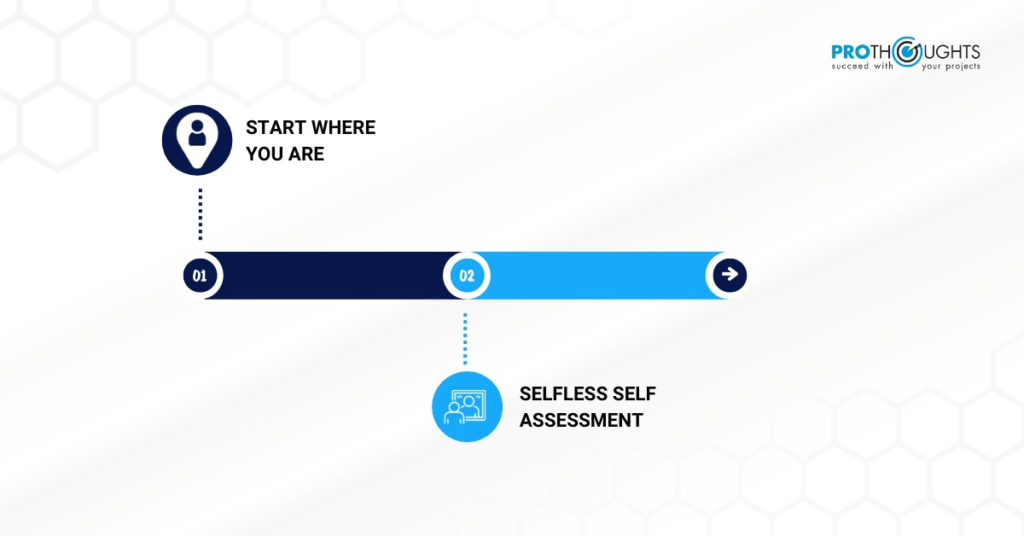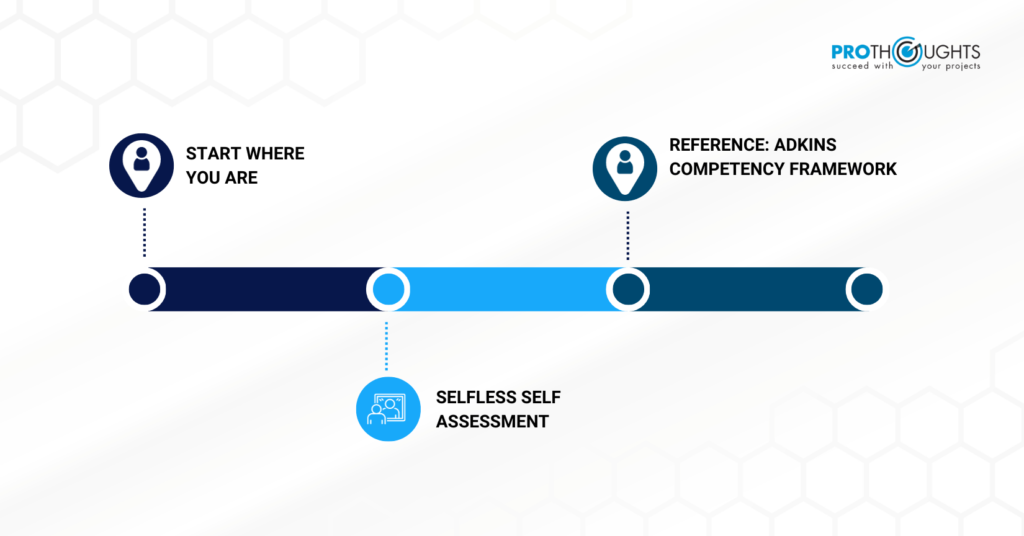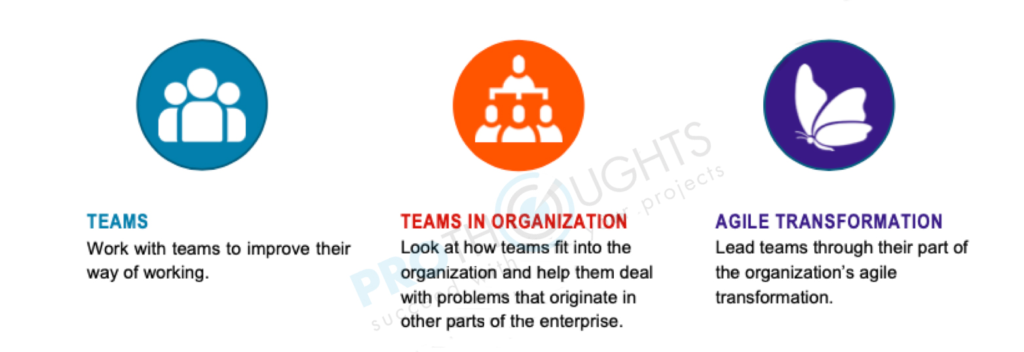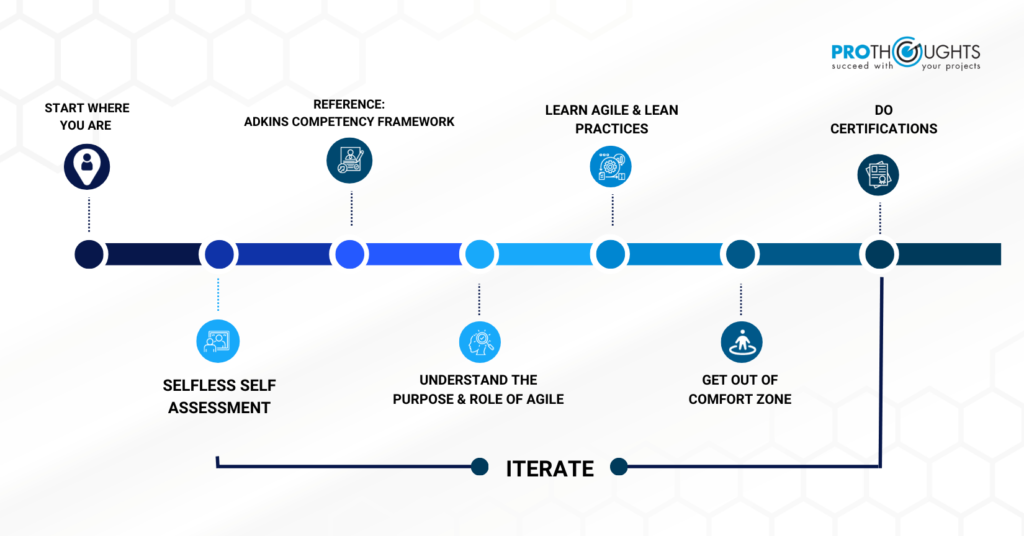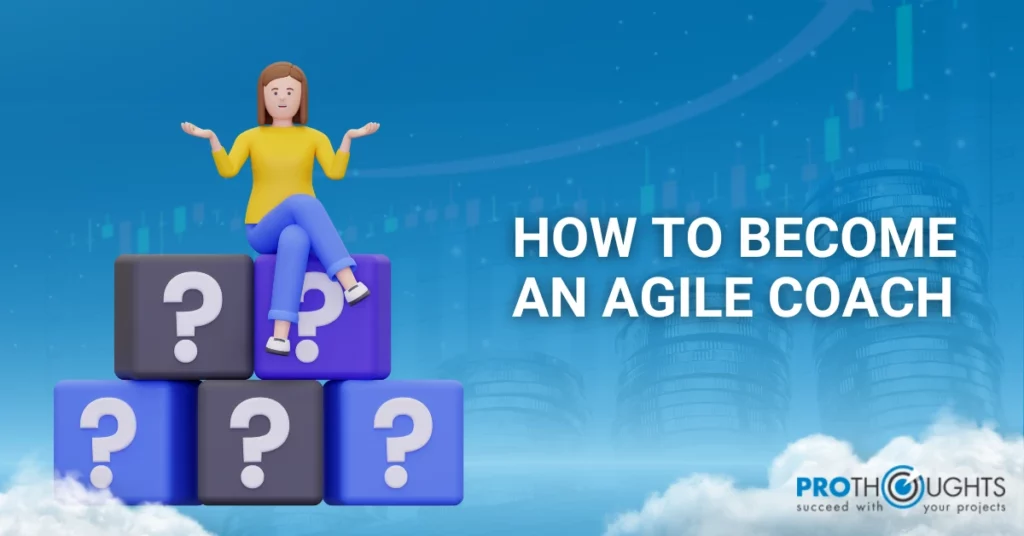
One of the top questions many people ask me is, “How to become an Agile Coach”? What’s the roadmap to becoming a successful Agile Coach?
Surprisingly, many of the top institutes such as PMI, SAFe, Scrum Alliance, ICAgile, and Axelos do not have a ready exact answer to this.
With the growing need for Agile coaches needed by several organizations, this question is getting amplified by the day.
Many project professionals wish to know how to become an Agile Coach. Where to start the journey from? What does it take to be an Agile Coach? How to be an Agile Coach?
I will try to answer these questions and also provide some tips for being an Agile Coach:
What is the starting point of the journey for an Agile Coach?
Start where you are.
It is as simple as that. And Agile Coach is a journey rather than a destination. A cliché but very true for the Agile Coach.
Starting where you are is actually a good starting point. You have undoubtedly acquired good experience so far.
This may be in many spheres – it may not even be Agile experience. It may be in the Business Domain or some Technical experience or you may have contributed to some Transformation practice.
Or you have been a Trainer or a Moderator, or you are already a Coach.
Whatever it is, you have decided to be an Agile Coach – that becomes your starting point.
And on this starting point, you need to do a selfless Self-Assessment of what your strengths and weaknesses are.
And accordingly, take the next steps.
So, the 1st destination of the Agile Coach roadmap is “Start where you are,” and the 2nd step is “Selfless Self-Assessment.”
Adkins Coaching Competency – A good reference point
The Adkins Coaching Competency is developed by Lyssa Adkins and talks about the various competencies a Coach should have.
This is a good reference point for the capabilities and competencies a Coach should have. It may not be the case that you need to be the best in each of the competencies. In fact, you may have just started in some competency and do not carry enough experience, e.g., Transformation. You may not have sufficient competency in this part. But the idea is to develop that competency. Try garnering more experience so that you can develop the overall Agile coaching competencies.
I am going to briefly mention the various competencies, and these competencies are widely available on the internet. But presenting it my way here.
Domain Competencies
Technical Mastery is all about the technical nature of your work. It can be in any industry and not necessarily IT. Specifically, Technical here means the knowledge about the work the person is doing. For example, It can be manufacturing, procurement, or any function. Business Mastery is focused on helping the organization with strategy, operations, process, and product innovation. Transformation Mastery is focused on change leadership, organizational change, facilitation, and helping organizations transform and evolve.
Content Focused Competencies
On the left side, we have teaching and mentoring. These are typically about imparting knowledge (or “content”).
Teaching is about imparting knowledge on how to do certain things. And when it comes to Agile space, it can be related to how to do Kanban for your team, etc. The idea is to get them to know how to do things so that they can apply in their projects. Typically, teaching has some pre-defined outcomes or objectives.
Mentoring is also based on your knowledge. Also, I would say that Mentoring is without any “Training agenda,” and it is more free-flowing and curated as per each mentee’s needs. Moreover, Mentoring is like sharing knowledge from your personal experiences to help the mentee solve his / her problems/situations. The person or team you are mentoring should still own the decision. If you are doing this well, they should grow their capacity and “capability” over time. Learn more about how Agile Coaches navigate decision-making in the recording of this recent webinar that I conducted:
New Barriers to Decision Making How Agile Coaches Lead the Way? | ProThoughts
Process Focused Competencies
On the right side, we have facilitation and professional coaching. These competencies are more focused on holding a process or space for people to bring their intelligence as well as creativity to tackle challenges, learn, and improve.
Facilitation is about holding an impartial stance. You may facilitate a delivery team during a retrospective or an executive team in a strategic planning session, but you are impartial. Your goal is to hold them to the agreed-on guidelines, but you do not have a specific expected outcome.
Professional Coaching is about being impartial to the goal. Coming from professional coaching, you believe, truly, that the team can solve the problems they have. You work with them to help the team to solve those issues and be their best selves. I believe this is the most challenging space to stand in because it requires you to trust and honor the wisdom of the people and the team. That is not trivial, even in the best organizations in the world. Coaching a team from the professional coaching space means that you are not teaching by imparting specific knowledge about a solution. You are helping the team to solve the problem via their own knowledge (which is always greater than believed).
Agile & Lean Practitioner
The idea of Agile & Lean practitioners is that you should have a deep expertise in this space. And the magic happens when you interplay with the domain and technical mastery. One way to attain this expertise is through certifications and experience. You will find more details later in the blog.
Soft Skills – The Secret Answer To “How To Become An Agile Coach?”
One thing besides these competencies is the Soft Skills, which is kind of a tacit requirement when dealing with the top leadership or management cadre. However, I want to make this quite explicit. I wish Lyssa Adkins could have added the Soft Skills part to the competency framework! But these are subsequently added to the Coaching competency later on.
Without a doubt, an Agile coach should have strong soft skills. Most of the time, the Agile Coach spends with the leadership, although his scope of work is mostly with the teams. Even with the teams, he needs to have strong Emotional Intelligence and Conflict Management skills to negotiate and influence the team. These soft skill sets have been added to the Disciplined Agile Senior Scrum Master (DASSM) Certification of PMI, and rightly so.
The Agile Coach needs to develop superior soft skills to earn the respect of the team and the leadership.
The 3rd destination on the Agile Roadmap is “To Understand Competencies Required,” and the 4th destination is “Develop the missing Competencies” and “Enhance the Competencies.”
Let’s venture into what’s the purpose of an Agile Coach.
Purpose of An Agile Coach:
The purpose of an Agile Coach is important to even consider the Agile Coach Roadmap. Many coaches think they are doing the Scrum Master job at some organizational level.
“The main purpose of the Agile Coach is to make the teams self-organizing, self-improving and self-learning.”
The idea of an Agile Coach is short-term engagement and with a specific purpose, unlike a Scrum Master.
Scope of the Agile Coach:
Continuing from the earlier topic, the scope of the Agile Coach is primarily to work with the teams. The teams manifest the organizations, and therefore, over a period of time, things at the organization will improve.
Agile Coaches help the teams solve problems and inspire the potential within the team to build an awesome team.
Agile Coaches work with teams at the primary level. However, the scope does extend and goes beyond the team. For example, the Agile coach works with interdependent teams such as Procurement, Legal, etc. And sometimes, they can be handed responsibility to cover a team in the organization who needs guidance. And in some cases, they work with Coaches at the enterprise level.
How To Become An Agile Coach? – The Secret To Attaining Mastery!
Going back on the Agile Coach Roadmap, there are a few more things as we progress to achieve more mastery of Agile Coaching.
1. Get Out Of Your Comfort Zone:
A good way to learn and master the content and excel in your profession is to step out of your comfort zone. Once you are comfortable with the coaching and garnered sufficient coaching experience, you need to step out of your comfort zone and challenge yourself.
This is the best way to learn new things and develop your character. You may fail or succeed, but you will surely learn, and definitely, you will be a better Coach.
2. Lean and Agile Practices:
A good Agile coach carries with him a lot of ammunition. This will help the coach solve problems that the teams are facing. The ammunition comes from experience and also, becoming aware and learning the plethora of Lean and Agile practices.
As a good coach, you need to be at least aware (if not practiced) of the different Agile and Lean project management practices. Also, you should help the team train and mentor the new methods and practices for the teams to improve their Way of Working.
Agile coaches grow by doing more. Nothing replaces practical experience.
3. Certifications:
One easy way to acquire knowledge is by earning Lean Certifications and Agile Certifications. These certifications are backed by some of the world’s best institutes that spend enough research, time, and money to develop something that the industry and professionals can use and apply. The certifications are a great way not only to apply the knowledge but also to enhance your market value and become more employable.
I am a strong proponent of certifications, and it has helped me tremendously in my career and work. And that’s one reason I am devoting my time to giving it back and helping the multitude of professionals to be better at their work skills.
One recommended certification is Disciplined Agile Coach (DAC). One of the big reasons for a DAC certification is that it provides a lot of ammunition in terms of a lot of lean and agile practices through the Disciplined Agile toolkit. As an Agile Coach, I am exposed to a lot of Agile and Lean practices, which otherwise would have been very difficult to get exposure to. As an instructor of PMI’s top certifications – Disciplined Agile Coach (DAC) and Disciplined Agile Value Stream Consultant (DAVSC), I highly recommend opting for either to further your journey into agility.
More About Disciplined Agile Coach (DAC) Certification
The 2nd aspect of the DAC certification is that it is one and the only certification, which is a practical-based certification. You go through various scenarios as a Coach, and you learn in the process. So the DAC certification training workshop is focused on the synthesis of learning, and the DAC Instructor should be vigilant and add value where it is required. The DAC instructor does not have a script in place, unlike other certifications. Hence, a good DAC Instructor is equally important for a great experience in the DAC Certification Training workshop.
The DAC starts from a Scrum Master and grows into an Agile Coach. Learn more about How to move from Scrum enthusiast to Agile Coach, in this linked video. Disciplined Agile is a toolkit, an ammunition that the Agile coach carries with him/her to solve the team’s problems. Of course, this is one of the several techniques and tools the Agile Coach has.
Providing some links to go through the DAC certification in more details:
- Disciplined Agile Coach (DAC) Certification
- Disciplined Agile Coach (DAC) Certification: What is it? | ProThoughts Solutions
- Disciplined Agile Coaching Fundamentals | ProThoughts Webinar
- Disciplined agile coach? A valuable role in organizational change | ProThoughts Webinar
- The Career Option of becoming an Agile Coach? Will it work for me?
- What is An Agile Coach – A Project Manager’s Handbook | ProThoughts
- What an Agile Coach Does & Why It Is So Important?
Types Of Agile Coaches – As per ICAgile
The other one is ICAgile, and it talks about 3 types of Coaches.
Personally, I do not differentiate between the various types of Coaches. I feel the Coaches have a purpose and a scope. And they help the team solve problems. Of course, they wear different hats as the situation demands. I will refrain from differentiating the different types of coaches.
Team Facilitator
This person focuses on one (or two) teams that are already “up and running.” They are developing basic skills in facilitation, mentoring, or training, as well as conscious communication. A team facilitator is not yet ready for Agile adoption or transformation initiatives.
Agile Coach
This person focuses on developing teams, other Agile Coaches and Team facilitators to use Agile well, including the ecosystem around the team. He is an expert in Lean-Agile practices and has chosen a knowledge domain focus (Technical expertise, business or organizational change). He possesses significant facilitation skills, and some professional coaching skills, and is adept at mentoring and teaching.
Enterprise Coach
This person focuses on developing the organization´s capacity to use Agile as a strategic business asset, including culture change, leadership development, and work at all organizational levels.
How To Be An Agile Coach, But Better! – Tips From My Side
I would also recommend some tips to be a better Agile Coach:
1. Understand the purpose of Agile Coach –
It is different from Scrum Master and not an extension. Read the blog on The Difference between Scrum Master and Agile Coach
2. Agile Coaches are not Masters –
They are on the road to achieve mastery. Like I said, becoming an Agile Coach is a journey rather than a destination. In that sense, the roadmap will never end.
Maybe we can term it as “Roadmap to Agile Coach Journey” and maybe help start the journey with some destinations to cover and let the Agile Coach decide the remainder of the journey himself/herself.
Agile coaches are not perfect, nor are they masters. They are on the path of learning new things. They are self-improving, and with each assignment, they get better and better.
3. Listen and NOT ”SHOW & TELL” –
Fine listening is a great art. I believe this art of fine listening – a soft skill is short in supply for sure. I think we know active listening. A fine listener not only listens but reads between the lines. Agile Coaches should observe and listen to get a sense of the environment and the team to solve the problem. The problem itself might be of several unsaid factors, and it is important that an impartial person gets a good hang of the situation and understands the problem that is occurring.
4. Enable the solution and do not give the solution –
Many leaders and organizations expect the Agile Coach to tell and lead the solution. Many expect the Agile Coaches to command and tell, and solve the problem. However, that’s not the correct approach. The Agile Coach should show the path towards the solution, and that’s a permanent solution. The idea of the Agile Coach is not to give a solution to the problem but to build a system to find the solution to the problem each time and every time.
5. Art of unbiasedness towards the goal –
Agile coaches are not biased and show neutrality towards the goals. You are not pleasing a leader or leadership. Agreeably, you do need to show diplomacy and negotiate with the leadership. But, a good coach’s purpose should not be compromised and the coach’s role demands neutrality and unbiasedness towards the team’s goal.
6. Pick up your spot –
Find which areas and team (read members) you need to associate with. What’s the competency you wish to build? What and how is the macro environment surrounding the team? Identify the real problem to solve.
7. Coaches are temporary –
Coaches are short-term engagements with the teams. It is necessary to recognize the purpose and scope of the Coach. As an Agile Coach, you should build mechanisms and solutions that build a position that is indispensable to the team. You are there till the time you make the team self-organizing, and then you leave. The sooner you achieve the goal, the better. You are not indispensable by any means to the team and organization.
These are some of the important considerations that a Coach should explore while considering the assignment. While the financial aspect is always there, how it can help the team grow, and you as a Coach can grow in the long scheme of things does matter.
A Roadmap to Agile Coach has many roads to take and is a difficult terrain, yet enjoyable. As mentioned earlier, we can perhaps call it a “Roadmap to Agile Coach Journey” with some key milestones. And it will perhaps look like one below:
Trust this blog was useful to you. I hope that it will help you to take the Agile Coach journey with much more confidence.
I will be more than happy to help you on the journey. You can connect with me on my LinkedIn profile, and we can have a conversation over there. This is my LinkedIn profile – https://www.linkedin.com/in/ashish-sadekar12/
Have a great day ahead!!!
